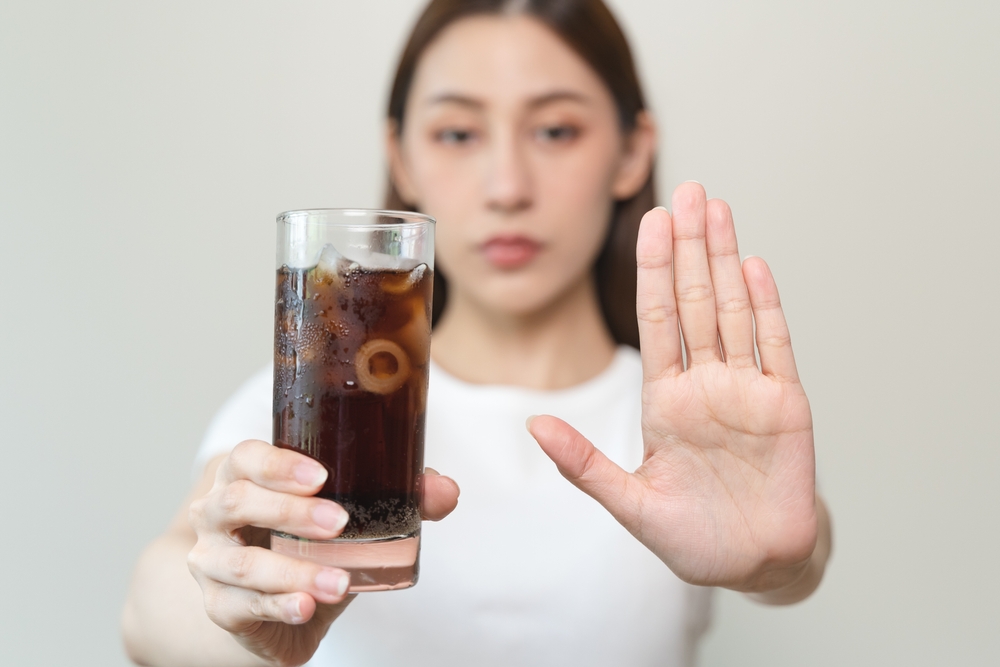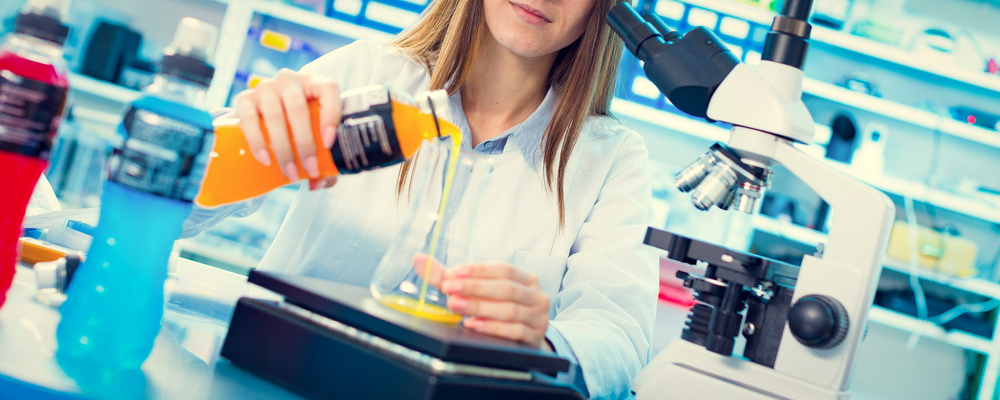Energy Drinks May Cause Blood Cancer, Says New Research!
Last updated on
You’ve seen them everywhere—stacked by the checkout counter, passed around in college libraries, cracked open during overnight shifts. With flashy labels and promises of unstoppable energy, it’s no wonder energy drinks have become a daily ritual for millions. In fact, over 30% of young adults in the U.S. rely on them regularly. But what if one of their key ingredients was doing more than just keeping you awake? What if it was helping cancer grow?
A new study published in Nature has sent ripples through the health and scientific communities by identifying a troubling link between a common energy drink additive—taurine—and the progression of blood cancer, specifically leukemia. While the research doesn’t suggest these drinks directly cause cancer in healthy individuals, it does uncover how taurine can act as a powerful fuel for leukemia cells.
As researchers unravel the deeper story behind this everyday amino acid, it raises urgent questions about what we’re putting into our bodies—and what that might mean for those already at risk.
What Sparked the Concern
The catalyst for the current wave of concern comes from a groundbreaking study published in the prestigious journal Nature, led by researchers at the University of Rochester’s Wilmot Cancer Institute. Their investigation focused on the role of taurine, an amino acid frequently found in popular energy drinks like Red Bull, Monster, and Celsius, and its unexpected connection to leukemia progression.
Using advanced genetic and cellular analysis—including CRISPR gene-editing and single-cell RNA sequencing—the researchers uncovered that leukemia cells in both mice and human cell models rely heavily on taurine to grow and survive. The key finding? When taurine was blocked from entering these cells, either by inhibiting the protein responsible for its transport (TAUT) or by altering bone marrow activity, cancer cell growth slowed dramatically and survival rates improved.

One particularly striking result came from mouse models, where taurine supplementation was linked to a threefold increase in the likelihood of death in mice with leukemia. According to the University of Rochester’s statement, cancer cells were seen consuming taurine, which then triggered glycolysis—a metabolic process that breaks down glucose to produce energy—effectively powering the disease’s progression.
This is a significant departure from taurine’s previously accepted role as a protective agent, particularly in chemotherapy, where it has been used to reduce treatment-related toxicity. The study’s authors caution that while taurine itself does not cause leukemia, its presence appears to fuel the disease’s aggression once it has developed, especially in blood cancers rooted in the bone marrow.
This revelation has led the researchers to issue a note of caution: for individuals diagnosed with leukemia or other myeloid malignancies, taurine supplementation—whether from energy drinks or dietary products—should be carefully evaluated in clinical settings.
What It Is and Why It’s in Your Drink

Before taurine was making headlines for its potential link to leukemia progression, it was best known as a beneficial compound—one that supports a range of essential bodily functions. Taurine is a naturally occurring amino acid found in high-protein foods like meat, fish, and eggs. It’s also synthesized in small amounts by the human body, particularly in the brain, heart, and muscles.
Unlike many amino acids, taurine is not used to build proteins. Instead, it plays a regulatory role, supporting processes such as:
- Regulating electrolyte balance in cells
- Supporting cardiovascular health and stabilizing heart rhythm
- Modulating the nervous system
- Aiding in bile salt formation, which is essential for digestion
Given these benefits, it’s easy to see why taurine found its way into energy drinks and supplements. Beverage companies often highlight taurine’s potential to improve mental focus, reduce muscle fatigue, and enhance athletic performance. It’s a staple ingredient in brands like Red Bull, Monster, Celsius, and Rockstar—often combined with caffeine, sugar, and B-vitamins to create a cocktail marketed for endurance and alertness.

From a consumer standpoint, taurine has long been considered “generally safe” when consumed in moderation. Studies have even suggested it might protect against oxidative stress and improve outcomes in gastric and cardiovascular diseases. For cancer patients, taurine has been used to ease the side effects of chemotherapy, thanks to its antioxidant properties.
However, the recent findings about taurine’s role in cancer metabolism show that this amino acid isn’t universally benign. What helps a healthy body maintain balance might also help a cancerous cell multiply. In leukemia cells, taurine becomes a metabolic resource, helping them produce energy rapidly and outcompete normal cells.
This dual nature makes taurine a uniquely complex compound: beneficial in many contexts, potentially harmful in others. It also illustrates a larger truth in health science—context is everything. What works as a support in one biological setting might become a liability in another, especially when disease processes co-opt our body’s natural systems.
How Taurine Affects Cancer Cells

To understand why taurine has raised red flags in cancer research, it’s important to look at how cancer cells—particularly leukemia cells—operate. Unlike healthy cells, which grow and divide in a controlled manner, cancer cells are hyperactive. They hijack the body’s natural processes to fuel their uncontrolled growth, and taurine, it turns out, may be one of their energy sources.
The recent study published in Nature revealed that leukemia cells use taurine to power a metabolic pathway called glycolysis, the same energy-producing process used by many cells in the body. But in cancer cells, this pathway is dialed up to a much higher level. Taurine helps these cells break down glucose more efficiently, giving them the fuel they need to grow faster and more aggressively.
What makes this even more significant is that taurine is not only consumed from outside the body—it’s also produced internally. Researchers found that bone marrow cells (where leukemia begins) increase taurine production as the disease progresses. A protein called CDO1 facilitates this internal production. The taurine is then transported into leukemia cells via a transporter protein known as TAUT.
When scientists blocked either the production (by inhibiting CDO1) or the transport (by knocking out the SLC6A6 gene that encodes TAUT), the leukemia cells’ growth slowed dramatically in lab models. Mice without access to taurine through these pathways showed significantly improved survival rates compared to those with unrestricted taurine intake.
Dr. Wael Harb, a hematologist and medical oncologist, explained this phenomenon simply: “The cancer cells can hijack the taurine to fuel their growth.” In essence, taurine becomes a partner in crime—feeding the very disease that healthcare professionals are trying to suppress.
Importantly, the researchers clarified that this mechanism does not mean taurine causes cancer. Healthy individuals consuming energy drinks or taurine supplements are not suddenly at risk of developing leukemia. However, in people who already have the disease—or are undergoing treatment—extra taurine may work against them, possibly accelerating the cancer’s progression.
These findings underscore the fine line between helpful and harmful in cancer biology. The same nutrient that can aid performance or support organ health may, under certain circumstances, empower a life-threatening illness. That’s why, in the context of leukemia, the presence of taurine—particularly from supplements or energy drinks—warrants careful evaluation.
What This Means for You: Should You Be Concerned?

At first glance, the headlines are jarring—a common energy drink ingredient linked to blood cancer progression. But as with most scientific findings, the reality is more nuanced.
The recent research does not suggest that drinking energy drinks will cause leukemia in healthy individuals. Experts, including study co-author Dr. Jeevisha Bajaj, have been clear: “We do not have any evidence that taurine, or any other ingredient in energy drinks, can increase the risk of leukemia in healthy people.” Rather, the concern is primarily for those already living with blood cancers—particularly leukemia—and how taurine might influence the course of their disease.
If you’re a regular consumer of energy drinks and generally healthy, this study shouldn’t send you rushing to throw out your stash. Instead, it’s a reminder to be mindful about consumption, especially if you or a loved one has a cancer diagnosis or is at increased risk due to family history or preexisting blood disorders.
For individuals undergoing treatment for leukemia or other myeloid malignancies, this research adds a potentially critical layer to treatment decisions. Taurine, previously seen as a helpful supplement for managing chemotherapy side effects, may inadvertently support cancer growth under certain conditions. That’s why oncologists are now urging patients and healthcare providers to reassess taurine supplementation on a case-by-case basis.
If you’re unsure about your risk or dietary choices, consult a medical professional—especially if you’re:
- Undergoing cancer treatment
- Living with a blood disorder
- Considering taurine supplements or consuming energy drinks daily
Dr. Wael Harb, a hematologist and medical oncologist, offers this guidance: “Taurine may help some cancerous cells to grow more quickly. That doesn’t mean it causes cancer, but if you already have it, it may fuel it.”
Beyond taurine, the broader health implications of energy drinks—like high caffeine, added sugars, and potential impacts on sleep, heart health, and anxiety—remain well-documented. While they may provide a quick energy fix, over-reliance can contribute to a cascade of other health issues.
Rethinking Our Relationship with Energy Drinks

While the focus of recent headlines has been taurine and its link to leukemia cell growth, this study is a timely prompt to look more critically at energy drinks as a whole—not just what’s in them, but how and why we consume them.
Energy drinks are marketed as solutions for fatigue, focus, and even physical performance. They’re especially popular among young adults, with data showing that nearly a third of people aged 18 to 29 consume them regularly. But these beverages often contain a potent mix of caffeine, sugar, synthetic additives, and stimulants that, while offering a temporary boost, can contribute to long-term health consequences.
Caffeine, in excessive amounts, is associated with increased heart rate, anxiety, and sleep disruption. Added sugars can spike insulin levels, lead to crashes in energy, and over time, contribute to metabolic diseases like diabetes and obesity. When paired with stimulants like guarana or ginseng, the effects may compound rather than complement each other.
Even taurine—though not inherently harmful—now adds another layer of complexity. The idea that it could accelerate leukemia progression under certain conditions doesn’t mean it’s dangerous for everyone, but it does make a case for measured, intentional consumption, particularly for people with pre-existing health conditions.
Importantly, energy drinks are often used as quick fixes. Reaching for one instead of sleeping an extra hour or staying hydrated may signal a broader issue: a lifestyle stretched too thin. The real conversation may not be just about taurine or caffeine—but about why so many of us feel the need to artificially manufacture energy to get through the day.
Instead of defaulting to energy drinks, consider alternatives that support sustained energy and overall health:
- Prioritize sleep hygiene and aim for consistent, high-quality rest.
- Stay hydrated—fatigue is often a sign of mild dehydration.
- Eat balanced meals with complex carbs, protein, and healthy fats to maintain steady energy.
- Incorporate movement—even light exercise like walking can boost alertness and mood.
For those who genuinely enjoy energy drinks, the key is moderation and awareness—not fear. Read the labels. Know your limits. And be mindful of how often you’re relying on a product to push past your body’s natural signals.
This latest research into taurine and leukemia isn’t a condemnation of energy drinks—it’s a catalyst for deeper reflection on how we fuel our bodies, especially when shortcuts might come with hidden costs.
Caution, Not Panic
The connection between taurine and leukemia progression uncovered in this recent study is significant—but it’s not a reason for alarmist reactions. Instead, it’s a call for contextual awareness and informed decision-making.
For most healthy individuals, the occasional energy drink is unlikely to pose any immediate danger. The science doesn’t suggest that taurine—or energy drinks in general—causes cancer in people without pre-existing conditions. What it does suggest is that for those who already have blood cancers like leukemia, taurine could play an unexpected role in making the disease more aggressive.
This is where nuance matters. Not all energy drink ingredients are created equal, and not all bodies respond the same way. For people undergoing treatment or living with cancer, even a seemingly innocuous amino acid can have unintended effects. For the general population, this research underscores a broader truth: what we consume regularly should not be treated casually.
Health trends evolve. What was once celebrated for its performance-enhancing properties—like taurine—can, in another context, reveal darker complexities. That’s not a flaw in science; it’s a reflection of how dynamic and interconnected our bodies are.
So what should you take away from all this?
- If you’re healthy, enjoy energy drinks in moderation and remain informed.
- If you have leukemia or are at risk, talk to your doctor about taurine intake, whether through diet, supplements, or beverages.
- Regardless of health status, focus on sustainable energy sources: sleep, nutrition, hydration, and movement.
Ultimately, energy is something we cultivate—not something we can always can or bottle. And while science continues to uncover the deeper interactions between our bodies and what we consume, we’re reminded of a simple truth: being informed is one of the most powerful choices we can make for our health.
Some of the links I post on this site are affiliate links. If you go through them to make a purchase, I will earn a small commission (at no additional cost to you). However, note that I’m recommending these products because of their quality and that I have good experience using them, not because of the commission to be made.




























 JOIN OVER
JOIN OVER
Comments